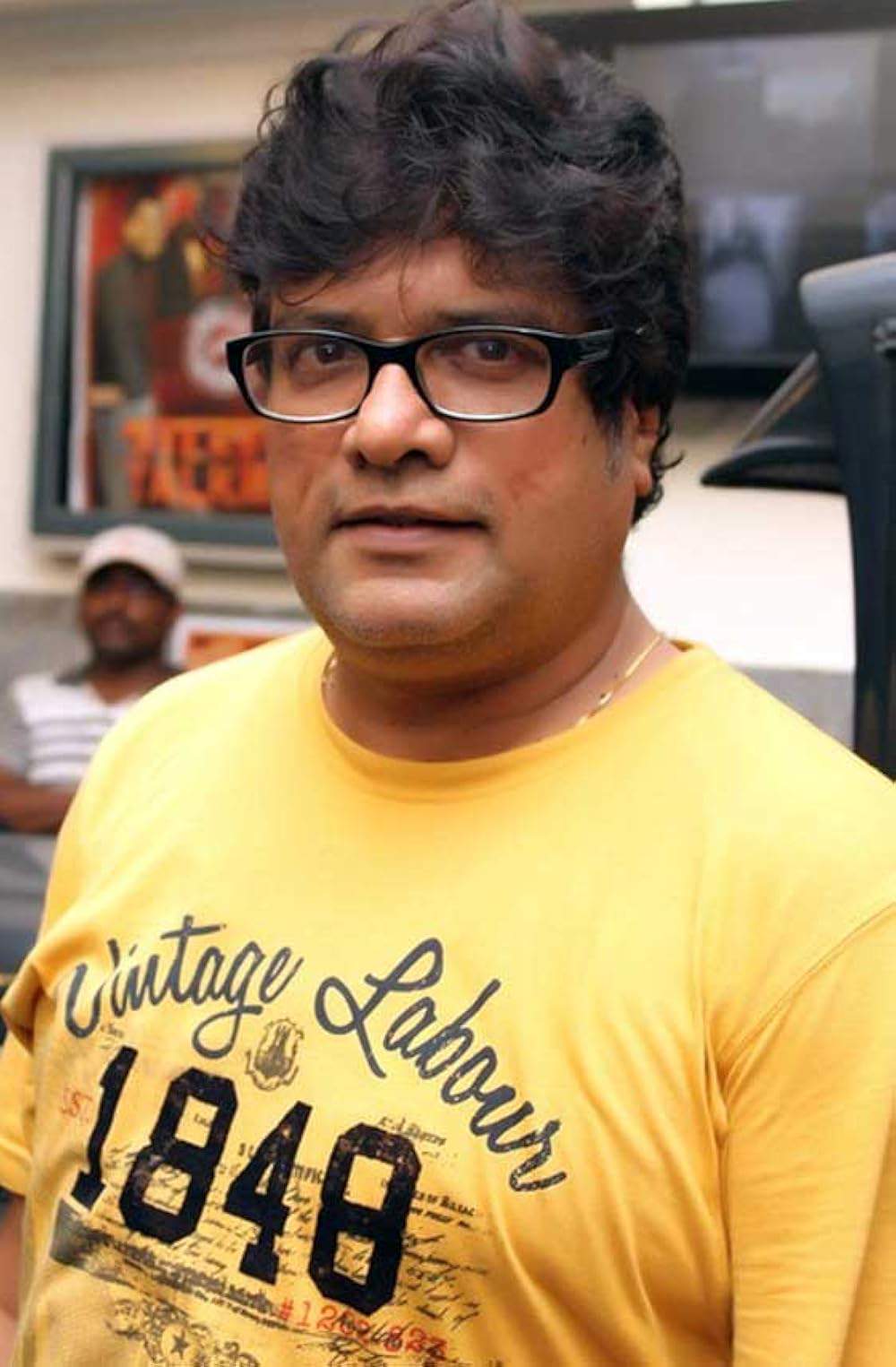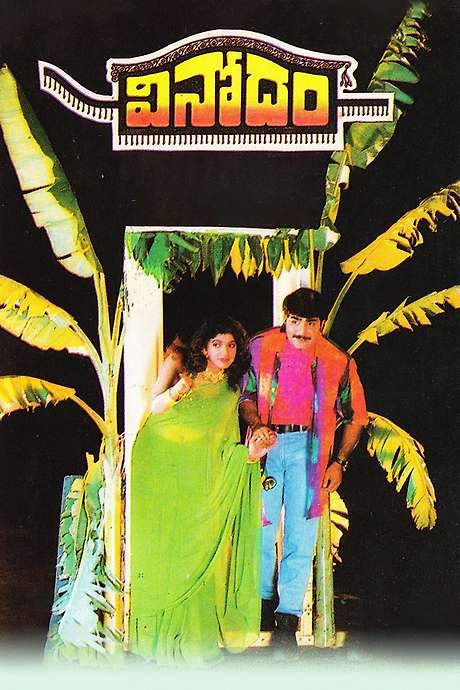Toilet: Ek Prem Katha 2017

In rural Mathura, Jaya leaves Keshav due to his family’s lack of a toilet, sparking an unexpected journey. Determined to win her back, Keshav confronts deeply ingrained societal norms and traditional beliefs surrounding sanitation. His quest to build a toilet becomes a symbolic battle for love and progress in a community where basic necessities are often overlooked.
Does Toilet: Ek Prem Katha have end credit scenes?
No!
Toilet: Ek Prem Katha does not have end credit scenes. You can leave when the credits roll.
Meet the Full Cast and Actors of Toilet: Ek Prem Katha
Explore the complete cast of Toilet: Ek Prem Katha, including both lead and supporting actors. Learn who plays each character, discover their past roles and achievements, and find out what makes this ensemble cast stand out in the world of film and television.
External Links and Streaming Options
Discover where to watch Toilet: Ek Prem Katha online, including streaming platforms, rental options, and official sources. Compare reviews, ratings, and in-depth movie information across sites like IMDb, TMDb, Wikipedia or Rotten Tomatoes.
Ratings and Reviews for Toilet: Ek Prem Katha
See how Toilet: Ek Prem Katha is rated across major platforms like IMDb, Metacritic, and TMDb. Compare audience scores and critic reviews to understand where Toilet: Ek Prem Katha stands among top-rated movies in its genre.

The Movie Echo Score
Toilet: Ek Prem Katha elicited a mixed response with appreciation for its technical craft and lead performance offset by critiques of its narrative execution and ideological framing. Viewers and critics alike noted polished visuals and strong central acting while lamenting uneven pacing and overt propaganda. The film’s social messaging resonated unevenly, lifting some moments but creating thematic clutter. Overall, it offers competent craftsmanship and a commendable cause but falls short of cohesive storytelling.
The Movie Echo Score Breakdown for Toilet: Ek Prem Katha

Art & Craft
In terms of Art & Craft, the film exhibits solid production design and competent editing that enhance its visual clarity. Reviewers acknowledged an understated yet effective color palette and measurable framing in song and dance sequences. Cinematography benefits from clean compositions, though moment-to-moment execution sometimes feels functional rather than inspired. Net of these elements, the craft delivers consistent professionalism without breaking new ground.

Character & Emotion
When it comes to Character & Emotion, the lead actor’s nuanced performance anchors the film with credible emotional resonance. Observers highlighted his measured character arc and authentic chemistry in romantic scenes. Secondary figures, however, are underdeveloped, with the female lead serving primarily as a catalyst for plot rather than a fully realized persona. Overall, the acting is engaging, though deeper character motivation is unevenly rendered.

Story & Flow
Regarding Story & Flow, the narrative’s strong social premise is undermined by halting pacing and episodic structure. Early sections linger on expository dialogue, delaying substantive conflict until the final stretch. The handling of multiple thematic threads creates a sense of clutter rather than coherent progression. Nevertheless, the core message retains impact through a straightforward arc. In sum, the plot is earnest but suffers from uneven momentum and overcrowded agendas.

Sensory Experience
In terms of Sensory Experience, the film’s soundtrack and sound design enrich key dramatic moments with well-timed musical cues. Visual style is characterized by a cohesive blend of vibrant song sequences and naturalistic rural backdrops. Auditory transitions remain smooth and support the film’s tonal shifts. Collectively, these sensory elements contribute to an engaging atmosphere, lending the story a reassuring polish and immersive appeal.

Rewatch Factor
For Rewatch Factor, the core social message and polished production may invite a second viewing for context or discussion, but narrative stiffness diminishes repeat appeal. Moments of strong performance and memorable song segments retain value, yet ideological focus and pacing issues lessen long-term enjoyment. In net effect, the film offers modest replay value for those interested in its cause, but it is unlikely to become a frequent favorite.


21%
TOMATOMETER

70%
User Score

7.2 /10
IMDb Rating

68
%
User Score

3.1
From 2 fan ratings
Take the Ultimate Toilet: Ek Prem Katha Movie Quiz
Challenge your knowledge of Toilet: Ek Prem Katha with this fun and interactive movie quiz. Test yourself on key plot points, iconic characters, hidden details, and memorable moments to see how well you really know the film.
Toilet: Ek Prem Katha Quiz: Test your knowledge about the cultural and social themes of 'Toilet: Ek Prem Katha'.
What peculiar ritual does Keshav have to undergo before marrying Jaya?
Marrying a buffalo
Going on a pilgrimage
Building a toilet
Taking a vow of silence
Show hint
Full Plot Summary and Ending Explained for Toilet: Ek Prem Katha
Read the complete plot summary of Toilet: Ek Prem Katha, including all major events, twists, and the full ending explained in detail. Explore key characters, themes, hidden meanings, and everything you need to understand the story from beginning to end.
In a quaint village, a group of women sneak away in the early hours to relieve themselves in the open, hidden by the foliage. In this backdrop, we meet Keshav (played by Akshay Kumar), who faces an unusual predicament. Due to his father’s superstitious beliefs, Keshav must partake in a ceremonial wedding with a buffalo, a tradition upheld by his father, Pandit Vimalnath Sharma (portrayed by Sudhir Pandey). This bizarre ritual is believed to bring Keshav better fortune.
Enter Jaya (played by Bhumi Pednekar), the state’s top student, who initially clashes with Keshav. A chance meeting on a train leaves Keshav smitten with Jaya, but his lack of English skills and her intellectual prowess create a rift. He runs a bicycle shop and serendipitously discovers that Jaya is his customer. In an attempt to boost his business, he uses her photos for promotional posters, igniting Jaya’s outrage when she finds out.
In an effort to win her affection, Keshav awkwardly tries to get close to Jaya during Holi, but she rebuffs his advances, insisting they come from different worlds. Heartbroken, Keshav vows to move on, yet Jaya finds herself strangely drawn to his sincerity. As they gradually begin to date, Keshav’s father’s belief that Keshav can only marry someone with two thumbs complicates their relationship. Ingeniously, Keshav provides Jaya with an artificial thumb, which she wears as a ring, fooling his father into approving their union.
However, on her first morning at Keshav’s home, Jaya’s frustrations mount when she is forced to once more venture into the fields for a bathroom. Having experienced a life with proper sanitation in her own village, she insists that Keshav construct a toilet, which he tries to postpone. Despite Keshav’s temporary fixes, such as leading her to a train station restroom, Jaya’s insistence on having a toilet is unwavering, eventually resulting in her moving back to her parents’ home out of desperation.
The plot thickens when Jaya files for divorce, citing the lack of a toilet as her main reason. The absurdity of such a case grabs public attention, prompting government officials to take action for toilet construction in Keshav’s village. Yet, Keshav’s father remains obstinate. A pivotal moment occurs when Keshav’s mother injures herself on the way to the fields, leading even the father to acknowledge the pressing need for sanitation.
As the divorce hearing approaches, the judge receives a notification from the Chief Minister’s office urging him to delay the divorce, as construction of new toilets will commence immediately. In a heartwarming turn of events, Keshav and Jaya leave the court hand in hand, and Keshav’s father extends an apology for his earlier rigidity. The film wraps up with scenes of villagers eagerly awaiting their turn to use mobile toilets, symbolizing a significant shift in the community’s values and the impending construction of proper sanitation facilities throughout the village.
Uncover the Details: Timeline, Characters, Themes, and Beyond!

Coming soon on iOS and Android
The Plot Explained Mobile App
From blockbusters to hidden gems — dive into movie stories anytime, anywhere. Save your favorites, discover plots faster, and never miss a twist again.
Sign up to be the first to know when we launch. Your email stays private — always.
Watch Trailers, Clips & Behind-the-Scenes for Toilet: Ek Prem Katha
Watch official trailers, exclusive clips, cast interviews, and behind-the-scenes footage from Toilet: Ek Prem Katha. Dive deeper into the making of the film, its standout moments, and key production insights.
Toilet: Ek Prem Katha Themes and Keywords
Discover the central themes, ideas, and keywords that define the movie’s story, tone, and message. Analyze the film’s deeper meanings, genre influences, and recurring concepts.
Toilet: Ek Prem Katha Other Names and Titles
Explore the various alternative titles, translations, and other names used for Toilet: Ek Prem Katha across different regions and languages. Understand how the film is marketed and recognized worldwide.
Similar Movies To Toilet: Ek Prem Katha You Should Know About
Browse a curated list of movies similar in genre, tone, characters, or story structure. Discover new titles like the one you're watching, perfect for fans of related plots, vibes, or cinematic styles.
Quick Links: Summary, Cast, Ratings, More

What's After the Movie?
Not sure whether to stay after the credits? Find out!
Explore Our Movie Platform
New Movie Releases (2026)
Famous Movie Actors
Top Film Production Studios
Movie Plot Summaries & Endings
Major Movie Awards & Winners
Best Concert Films & Music Documentaries
Movie Collections and Curated Lists
© 2026 What's After the Movie. All rights reserved.



































